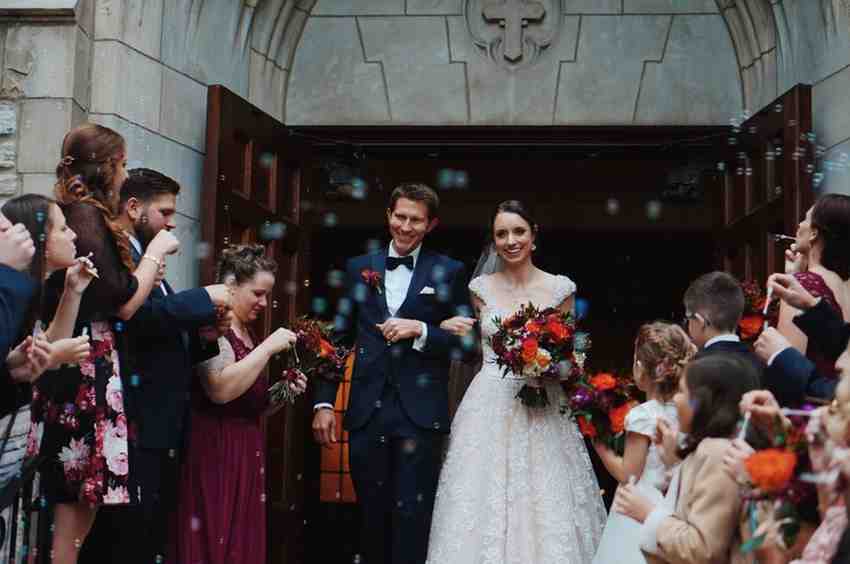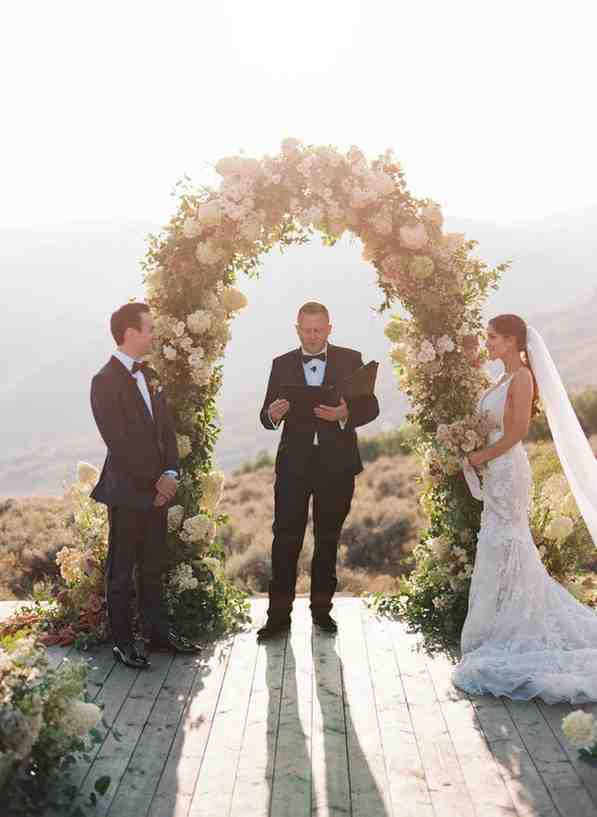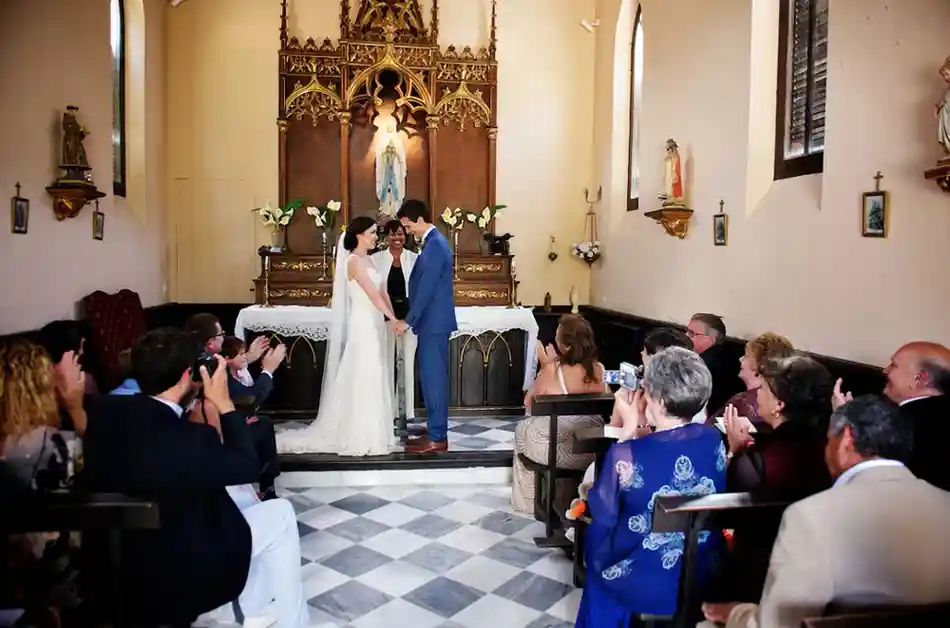What Is the Meaning of a Wedding Ceremony?
Your Complete Expert-Verified Guide to Understanding Wedding Ceremonies Across Legal, Religious, Cultural, and Modern Contexts
Understand Wedding Ceremony Meaning in Different Contexts
General Definition: The Universal Meaning
At its core, a wedding ceremony is the social and ritual event where two individuals formally become married. According to Britannica Dictionary, it represents the celebration at which two people are married, marking one of life's most significant transitions.
The ceremony serves three primary purposes: creating legal recognition of the marriage, celebrating love and commitment publicly before family and friends, and honoring traditions that give the union deeper meaning and connection to heritage.
Wedding ceremonies vary greatly between cultures, ethnicities, religions, and personal preferences, but they universally symbolize the beginning of a shared life journey and the formation of a new family unit.
Legal Context: Official Recognition and Requirements
From a legal standpoint, a wedding ceremony is the official procedure that creates a binding marriage contract recognized by government authorities. According to legal marriage definitions, a valid ceremony requires three essential elements:
Legal Requirements for Valid Wedding Ceremonies:
- Valid marriage license obtained from local government authorities before the ceremony
- Authorized officiant (judge, religious minister, notary, or legally ordained person) to solemnize the marriage
- Witnesses (typically two adults) to attest to the marriage taking place
- Compliance with local laws regarding age, consent, and legal capacity to marry
The ceremony must be conducted in accordance with state or country regulations, and the marriage license must be properly signed and filed with government offices to make the union legally binding. Civil ceremonies are specifically designed to meet these legal requirements without religious components.
It's important to note that some couples choose symbolic ceremonies that don't create legal marriages—these celebrate commitment but don't provide legal recognition or benefits. For wedding planning purposes, understanding the legal requirements in your jurisdiction is essential.
Religious and Spiritual Significance
In religious contexts, a wedding ceremony represents a sacred covenant blessed by divine authority, transcending the purely legal or social aspects. Different faith traditions view marriage as spiritually significant:
Christian traditions often view marriage as a holy sacrament representing Christ's relationship with the church. The ceremony includes wedding vows, prayers, and blessings that invoke God's presence in the union. According to Marriage Builders, the ceremony's prime function is providing couples an opportunity to make sacred promises before God and community.
Jewish ceremonies incorporate ancient rituals like the ketubah (marriage contract) and breaking of the glass, symbolizing the destruction of the Temple and the seriousness of marriage commitments.
Hindu weddings include elaborate multi-day ceremonies with sacred fire rituals (saptapadi - seven steps), symbolizing the couple's journey through seven aspects of married life together.
Islamic ceremonies (nikah) focus on the marriage contract and include the mahr (dowry), emphasizing mutual rights and responsibilities ordained by Islamic law.
Even non-denominational spiritual ceremonies recognize marriage as a profound soul connection, incorporating elements like unity rituals, meditation, and intention-setting that honor the couple's spiritual beliefs without adhering to specific religious doctrines. These ceremonies focus on universal spiritual principles of love, growth, and partnership.
Cultural Traditions and Global Perspectives
Wedding ceremonies serve as powerful cultural expressions that preserve heritage, strengthen family bonds, and connect generations. According to global wedding tradition research, ceremonies reflect the rich cultural heritage of each region and ethnic group.
African traditions often include elaborate ceremonies like jumping the broom (symbolizing the couple's entrance into a new life together), libation pouring to honor ancestors, and vibrant celebratory dances involving the entire community.
Asian ceremonies vary dramatically: Chinese weddings feature tea ceremonies honoring elders and the color red symbolizing good fortune; Japanese ceremonies include sake sharing (san-san-kudo) representing the bond between families; Indian weddings span multiple days with mehndi (henna application), sangeet (musical celebration), and the main ceremony.
Latin American traditions include the lasso or rope ceremony (lazo) symbolizing eternal unity, the arras (coins) representing financial prosperity, and padrinos/madrinas (sponsors) who provide spiritual and practical support.
European customs range from Greek guests pinning money on couples for prosperity, to Swedish brides carrying fragrant herbs to ward off trolls, to Irish handfasting that literally ties couples together with cord.
Understanding different types of weddings helps couples honor their heritage while creating meaningful personal ceremonies. These cultural elements transform weddings from simple legal transactions into profound celebrations of identity, history, and community belonging.
Modern and Practical Perspectives
Contemporary wedding ceremonies emphasize personalization, inclusivity, and meaningful customization while respecting tradition. Today's couples have unprecedented freedom to design ceremonies reflecting their unique values and relationships.
Ceremony types available today include:
- Civil ceremonies: Non-religious, legally binding ceremonies performed by government officials or authorized celebrants
- Religious ceremonies: Traditional faith-based weddings in houses of worship with denomination-specific rituals
- Interfaith ceremonies: Blending multiple religious traditions to honor both partners' backgrounds
- Humanist ceremonies: Non-religious but deeply meaningful, focusing on human values and philosophical principles
- Spiritual ceremonies: Incorporating universal spiritual elements without specific religious dogma
- Commitment ceremonies: Celebrating partnership without legal marriage (for personal or legal reasons)
- Elopements: Intimate ceremonies with just the couple and essential witnesses
- Destination weddings: Ceremonies in meaningful locations away from home
According to The Knot's ceremony guide, modern couples typically spend 45-60 minutes on the ceremony itself, though wedding duration varies widely by culture and preference.
Practical planning involves selecting an officiant, choosing meaningful readings and music, deciding on unity rituals (candle lighting, sand ceremony, tree planting), and creating a ceremony structure that reflects the couple's personality. Many couples work with wedding planners to coordinate these elements seamlessly.
The rise of personalized vows, unique venue choices, and creative ceremony elements means today's weddings balance tradition with innovation, creating experiences that are both timeless and distinctly modern.

Traditional wedding ceremony showcasing the sacred exchange of vows before family and community
Understanding the Core Components of Wedding Ceremonies
The Exchange of Vows: The Heart of Every Ceremony
Regardless of type, nearly every wedding ceremony centers on the exchange of vows—the promises couples make to each other. These vows may follow traditional religious formats or be entirely personalized, but they serve the fundamental purpose of publicly declaring commitment. According to the American Marriage Ministries, this exchange is what transforms the ceremony from a mere gathering into a life-changing ritual.
Traditional vows often include promises to love "for better or worse, for richer or poorer, in sickness and in health," while modern couples increasingly write personalized vows that reflect their unique relationship journey, inside jokes, and specific commitments to each other.
The Role of the Officiant
The officiant serves as the ceremony's guide and, in legal ceremonies, the authorized representative who solemnizes the marriage. Officiants can be religious leaders (priests, rabbis, imams, ministers), government officials (judges, justices of the peace), or ordained individuals through organizations like the Universal Life Church.
A skilled officiant crafts the ceremony narrative, incorporates meaningful elements, ensures legal requirements are met, and creates an atmosphere that reflects the couple's values. When planning your wedding, selecting the right officiant is one of the most important decisions.
Unity Rituals and Symbolic Actions
Many ceremonies incorporate unity rituals that symbolize two lives becoming one:
- Unity candle ceremony: Two individual candles light a central candle together, representing separate lives joining
- Sand ceremony: Different colored sand from separate containers is poured into one, creating a permanent blended pattern
- Handfasting: Ancient Celtic tradition of binding hands with cord, symbolizing the couple's bond
- Tree planting: Planting a tree together represents growing love and putting down roots
- Wine ceremony: Sharing wine from the same cup symbolizes sharing life's sweetness
- Breaking glass (Jewish tradition): Represents both the destruction of the Temple and the seriousness of marriage
These rituals add layers of meaning and create memorable moments that guests witness and remember. Many couples choose rituals that reflect their cultural heritage or personal beliefs.

Modern spiritual ceremony celebrating love in a meaningful natural setting
Why Wedding Ceremonies Matter: The Deeper Significance
Creating Shared Meaning and Threshold Moments
According to ceremony design experts, the most important purpose of a wedding ceremony is to create shared meaning. You're stepping over an important threshold in life, and when that moment is witnessed by your community, it gains power and significance that private commitments cannot achieve.
The ceremony transforms personal love into social recognition. According to wedding ceremony specialists, ceremonies matter because they are celebrations of love that provide:
- Public accountability: Declaring your commitment before witnesses creates social bonds that support the marriage
- Family unity: Bringing two families together and creating new relationships between extended family members
- Community celebration: Allowing friends and family to participate in your joy and offer their blessings
- Tradition preservation: Connecting you to ancestors and cultural heritage through time-honored rituals
- Memory creation: Providing a singular, memorable moment that becomes part of your love story
- Emotional closure: Marking the end of single life and the beginning of married life with clear demarcation
The Psychology of Ceremony
Psychologists note that ceremonies serve important functions in human development and social bonding. The wedding ceremony specifically helps couples transition from "I" thinking to "we" thinking. The public nature of the commitment activates psychological mechanisms that strengthen resolve and increase investment in the relationship's success.
The presence of witnesses creates what researchers call "social proof"—your community validates and supports your union, making it feel more real and important. This is why even couples who could legally marry without any ceremony often choose to have one anyway.
Legal and Practical Benefits
Beyond emotional significance, wedding ceremonies create legal status that provides:
- Tax benefits and filing status changes
- Healthcare decision-making rights for your spouse
- Inheritance rights without a will
- Social security and pension benefits
- Immigration and residency rights (for international couples)
- Family health insurance coverage
- Hospital visitation rights during medical emergencies
These practical benefits underscore why the legal recognition aspect of wedding ceremonies remains important even in our modern era of cohabitation and partnership diversity.

Understanding the traditional structure helps you plan a meaningful ceremony flow
Planning Your Wedding Ceremony: Practical Guidance
Choosing Your Ceremony Type
The first decision in wedding planning is determining what type of ceremony aligns with your values, beliefs, and legal requirements. Consider these factors:
Ceremony Type Decision Factors:
- Religious affiliation: Are you both the same faith? Different faiths? Non-religious?
- Legal requirements: What does your jurisdiction require for a legal marriage?
- Family expectations: How important is it to honor family traditions and expectations?
- Personal values: What rituals and elements feel authentic to your relationship?
- Guest considerations: Will your ceremony be meaningful and comfortable for diverse guests?
- Venue constraints: Does your chosen venue require or prohibit certain ceremony types?
Many couples blend elements from different traditions to create hybrid ceremonies that honor multiple heritages or belief systems. Interfaith and non-denominational officiants specialize in creating these customized experiences.
Typical Ceremony Structure
While ceremonies vary, most follow a recognizable structure that helps guests understand the flow and significance of each moment:
- Processional: The entrance of the wedding party and couple (varies by tradition—some cultures have the couple enter together, others separately)
- Welcome and opening remarks: Officiant greets guests and explains the ceremony's significance
- Readings or musical selections: Poems, scripture, or songs that reflect the couple's values
- Charge to the couple: Officiant speaks about the meaning of marriage and the couple's commitment
- Exchange of vows: The heart of the ceremony where promises are made
- Ring exchange: Symbolic giving of wedding bands representing eternal commitment
- Unity ritual (optional): Candle lighting, sand ceremony, or cultural tradition
- Pronouncement: Official declaration that the couple is married
- First kiss: The couple's first kiss as married partners
- Recessional: Joyful exit of the newly married couple and wedding party
Understanding this structure helps you customize elements while maintaining flow. Wedding programs can guide guests through your personalized ceremony.
Timing and Length Considerations
Most wedding ceremonies last between 20-45 minutes, though this varies significantly by culture and religion:
- Civil ceremonies: Typically 10-20 minutes (shortest, most efficient)
- Protestant Christian ceremonies: Usually 20-30 minutes
- Catholic Mass weddings: Often 45-60 minutes (includes full Mass)
- Jewish ceremonies: Generally 25-40 minutes (varies by denomination)
- Hindu ceremonies: Can last several hours or even multiple days
- Muslim ceremonies: Typically 20-30 minutes for the nikah itself
When deciding length, consider your guests' comfort, venue restrictions, and whether you want an intimate focused ceremony or an elaborate celebration. There's no "correct" length—only what feels meaningful to you.
Budget Considerations for Ceremonies
While much attention focuses on reception costs, ceremony expenses include:
- Officiant fees: $200-$800 typically (some religious leaders don't charge, civil officiants vary by location)
- Venue rental: Churches may be free for members; non-religious venues range from $500-$5,000+
- Marriage license: $35-$150 depending on your jurisdiction
- Ceremony décor: Florals, arch, aisle decorations typically $300-$2,000
- Music: Musicians, singers, or DJ for ceremony typically $300-$1,500
- Programs and ceremony materials: $50-$300 for printed programs
Understanding overall wedding costs helps you allocate budget appropriately between ceremony and reception.
Ready to Plan Your Perfect Wedding Ceremony?
Explore our comprehensive wedding planning resources and expert guides
Start Planning Your WeddingFrequently Asked Questions About Wedding Ceremonies
Is a wedding ceremony required for marriage?
Legally, some form of ceremony is typically required, but it can be very minimal. Most jurisdictions require a ceremony conducted by an authorized officiant where vows are exchanged before witnesses. However, this can be as simple as a 5-minute courthouse ceremony or as elaborate as a multi-hour celebration. The legal requirement is the solemnization (formal authorization) of the marriage by a qualified officiant, not any specific type of elaborate ceremony.
What's the difference between a wedding ceremony and a reception?
The ceremony is the formal ritual where two people legally become married through exchange of vows. The reception is the celebration party that follows, featuring dinner, dancing, toasts, and entertainment. According to wedding etiquette guides, the ceremony is the essential legal and symbolic element, while the reception is optional (though most couples have both). Some couples have the ceremony and reception at the same location, others at different venues.
Can you have a wedding ceremony without getting legally married?
Yes, these are called symbolic ceremonies or commitment ceremonies. They include all the meaningful elements—vows, rings, celebration—but don't create legal marriage. Couples choose symbolic ceremonies when they're already legally married elsewhere, when legal marriage isn't available to them, or when they want to celebrate commitment without legal ties. These ceremonies have no legal effect but can be deeply meaningful personally and socially.
How do interfaith couples handle wedding ceremonies?
Interfaith ceremonies blend elements from multiple religious traditions. Options include: having co-officiants from both faiths, choosing a neutral officiant who incorporates both traditions, alternating between religious customs from each faith, or creating a spiritual ceremony that honors both backgrounds without specific religious doctrine. Many interfaith couples work with specialized officiants experienced in creating respectful, meaningful blended ceremonies.
What makes a wedding ceremony legally valid?
For legal validity, a ceremony must include: (1) a valid marriage license obtained before the ceremony, (2) an officiant authorized by the jurisdiction to solemnize marriages, (3) the couple's verbal consent to marry (vows), (4) witnesses as required by local law (usually two adults), and (5) proper completion and filing of the marriage license after the ceremony. Without these elements, the ceremony may be meaningful but won't create a legal marriage.
How long should a wedding ceremony be?
Most ceremonies last 20-30 minutes, though there's no universal rule. Factors affecting length include: religious requirements (Catholic Masses can be 60+ minutes), number of readings and rituals included, cultural traditions, and personal preference. Keep guests' comfort in mind—outdoor ceremonies in extreme weather should be shorter, ceremonies with many elderly guests should include seating, and very long ceremonies should clearly communicate timing to guests in advance.
Do you need rehearsals for wedding ceremonies?
Rehearsals are highly recommended but not legally required. A rehearsal (usually the evening before the wedding) allows the wedding party to practice processional order, timing, positioning, and any complex elements like unity rituals. This reduces nervousness and confusion on the actual day. Simple ceremonies with few participants might not need rehearsal, but anything involving multiple people, children, or special rituals benefits greatly from practice.

Exploring different ceremony types helps you choose what feels authentic to your relationship
Conclusion: The Enduring Meaning of Wedding Ceremonies
A wedding ceremony is far more than a legal formality or social event—it's a transformative ritual that marks one of life's most significant transitions. Whether you choose a traditional religious ceremony, a modern civil service, a spiritual celebration, or a culturally rich traditional wedding, the core meaning remains constant: publicly declaring your commitment to build a life together.
The beauty of contemporary weddings lies in the freedom to honor tradition while creating something uniquely meaningful. You can incorporate centuries-old rituals alongside modern personal vows. You can blend cultural heritages from different backgrounds. You can celebrate in grand style or intimate simplicity. What matters most isn't the size, cost, or specific format—it's that the ceremony authentically reflects your relationship and values.
As you plan your wedding journey, remember that the ceremony is the foundation. It's the moment you'll remember most vividly, the promises that will guide you through challenges, and the celebration that brings your communities together. Invest time in creating a ceremony that truly means something to you both.
Whether you're just beginning to explore wedding types, researching wedding symbolism, or ready to book professional planning assistance, understanding the deep meaning of wedding ceremonies helps you make choices aligned with what matters most—celebrating your love and commitment in a way that's meaningful, memorable, and authentically yours.
Continue Your Wedding Planning Journey
Discover more expert guides, planning tools, and inspiration for your perfect day
Explore All Wedding Resources